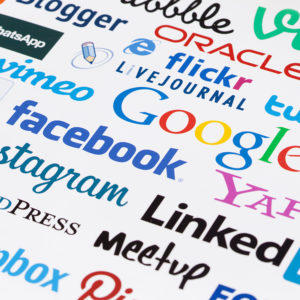Editor’s Note: For another viewpoint, see Counterpoint: Repealing Section 230 Would Limit Americans’ Speech.
The mob attack on the U.S. Capitol was incited and planned over Facebook, Twitter, YouTube and other digital media platforms, with a tragic nudge from the president of the United States. The gripping presence of gunshots and cowering Congress members inside the “People’s House” is a warning to us all. How did we arrive here?
Since the birth of the Big Tech media platforms 15 years ago, democracies around the world have been subjected to a grand experiment: Can a nation’s news and information infrastructure, which is the lifeblood of any democracy, be dependent on digital technologies that allow a global free speech zone of unlimited audience size, combined with algorithmic (non-human) curation of massive volumes of mis/disinformation, that can be spread with unprecedented ease and reach?
The evidence has become frighteningly clear that this experiment has veered off course, like a Frankenstein monster marauding across the landscape.
Facebook is no longer simply a “social networking” website — it is the largest media giant in the history of the world, a combination publisher and broadcaster with 2.6 billion regular users, and billions more on the Facebook-owned WhatsApp and Instagram. A mere 100 pieces of COVID-19 misinformation on Facebook were shared 1.7 million times and had 117 million views — far more viewers than the New York Times, Washington Post, Wall Street Journal, ABC, Fox News, and CNN combined.
The FacebookGoogleTwitter media giants have been misused frequently by bad actors for disinformation campaigns in more than 70 countries to undermine elections, even helping elect a quasi-dictator in the Philippines; and to amplify and even livestream child abusers, pornographers and the Christchurch mass murderer.
How can we unite to take action on climate change when a majority of YouTube climate change videos denies the science, and 70 percent of what YouTube’s 2 billion users watch comes from its sensation-saturated, conspiracy-driven recommendation algorithms?
It is time to push reset in a major way. President Biden should start by revoking Section 230 of the Communications Decency Act. That’s the law that grants Big Tech Media “blank check” immunity for the mass content that is published and broadcast across their platforms. Revoking Section 230 is not a perfect solution, but it would make these companies somewhat more responsible, deliberative and potentially liable for the worst of their toxic content, including illegal content. Just like traditional media is liable.
But let’s be clear: Some of the worst past outrages would not likely be affected by 230’s revocation. While President Trump’s inciting speech to the mob about a stolen election was false and provocative, other media outlets publish untrue nonsense all the time. It would be difficult to prove legally that any particular individuals or institutions were harmed or motivated by the president’s many outrageous statements.
So revoking Section 230 will likely not be as impactful as its proponents wish or its critics fear. The next step involves recognizing that these Silicon Valley companies are creating the new 21st century infrastructure of the digital age, requiring a whole new business model.
The Biden administration should treat these companies more like investor-owned utilities, as the U.S. previously did with telephone, railroad and power companies. (Facebook founder Mark Zuckerberg has suggested such an approach.)
As utilities, they would be guided by a digital license — just like traditional brick-and-mortar companies must apply for various licenses and permits — that defines the rules and regulations of the business model according to a “duty of care” obligation, a kind of Hippocratic Oath that says, “first, do no harm.”
One abuse that is ripe for stricter rules is “data grabs” of users’ personal info. These companies never asked for permission to start sucking up our private data, or to track our physical locations, or mass collect every “like,” “share” and “follow” into psychographic profiles of each user that can be targeted and manipulated by advertisers and bad political actors. The platforms started that sneaky practice secretly, forging their destructive brand of “surveillance capitalism.”
Now that we know, should society continue to allow this? Shouldn’t the default regulation require platforms to obtain users’ permission before collecting any of our personal data, i.e. opt-in rather than opt-out?
The new business model also should encourage competition by limiting the mega-scale audience size of these digital media monopolies. And it should restrain the use of specific “engagement” techniques, such as hyper-targeting of content, automated recommendations, and addictive behavioral nudges (like pop-up screens and autoplay) that allow manipulation.
These companies’ frequent outrages against our humanity are supposedly the price we must pay for being able to post our summer vacation and new puppy pics to our “friends,” or for political dissidents and whistleblowers to alert the world to their just causes. Those are all important uses, but the price paid is very high. We can do better.
The challenge now is to establish sensible guardrails for this 21st century digital infrastructure, so we can harness the good that these technologies provide, and greatly mitigate the dangerous effects.

